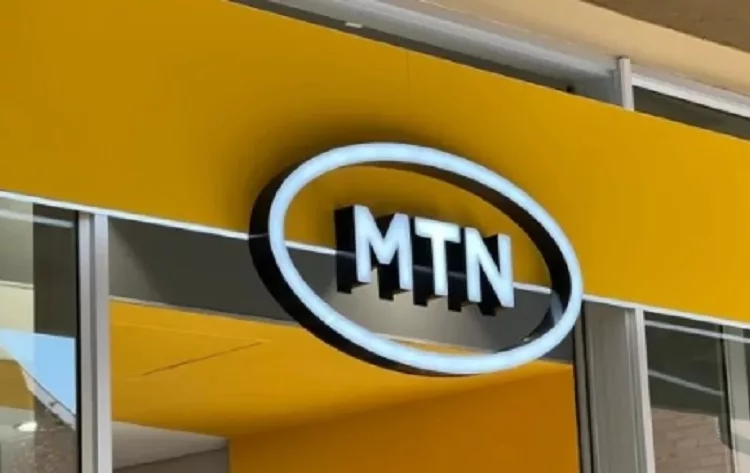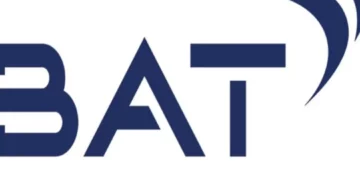MTN Nigeria has revealed that it is investing up to N900 billion in infrastructure deployment across Nigeria this year.
This investment is aimed at addressing rising network congestion, improving service quality, and expanding capacity to support the country’s digital growth.
This is even as the company faces a growing threat from rampant vandalism, sabotage, and fibre cuts, disruptions that cost MTN a minimum of N7 billion annually in fibre relocation alone.
The chief technical officer (CTO) of MTN Nigeria, Yahaya Ibrahim, in an interview with LEADERSHIP, said these dual realities: ‘massive capital injection on one hand and constant infrastructure damage on the other,’ pose serious challenges to Nigeria’s digital transformation agenda.
Ibrahim outlined the scale and urgency of MTN Nigeria’s infrastructure rollout, adding that, “We have committed close to N900 billion this year to expand and modernise our network. About 54 percent of the equipment tied to this budget has already arrived in-country and is being deployed. This includes hardware, fibre cables, power systems, and services for executing installations nationwide, among others,” he said.
Ibrahim explained that the investment is focused on boosting network capacity, upgrading switching centers, expanding LTE coverage, and resolving congestion in high-density areas. “Last year, we operated under immense financial pressure due to foreign exchange volatility and inflation. That limited our ability to scale. But this year, we are making bold investments to catch up and get ahead,” he added.
Despite the optimism around network expansion, MTN’s CTO expressed serious concern over the destructive trend of fibre cuts and infrastructure vandalism, which he described as the most persistent and costly challenge facing telecom operators in Nigeria today.
He disclosed that MTN experienced an alarming 397 fibre cuts in the month of May 2025 alone, up from a monthly average of 35 recorded at the end of 2024. “In some countries, you can go a whole year without a single fibre cut. Here, we had nearly 400 in one month. It is completely unsustainable,” he lamented.
These cuts, he explained, stem from a mix of factors including road construction without proper coordination, deliberate vandalism, ignorance, and in some cases, sheer sabotage. “Someone once knocked down a utility pole along the Lekki-Epe Expressway, dragging fibre cables with it. That isolation not just affected parts of Lagos but impacted traffic to our submarine cable, affecting users as far as Ghana and Liberia who rely on that connection,” he disclosed.
To cope with these disruptions, MTN has had to budget approximately ₦7 billion every year solely for fibre relocation. “We anticipate it. Whether it is road expansion or someone burning a manhole, we must be ready to move our cables. This is money we could be spending on new deployments, but instead we are constantly repairing what was already done,” Ibrahim said.
In response to the rising threat, Ibrahim said MTN had designed its network around a three-route redundancy model for its switching centres and fibre loops. This means that if one fibre line is cut, traffic automatically reroutes through alternative pathways, he explained.
To further strengthen operations, Ibrahim said MTN is now deploying Artificial Intelligence (AI) and automation for real-time fault detection, network optimization, and infrastructure protection.
“Today, if a fault occurs in Enugu, our Network Monitoring Center picks it up, raises a ticket, and assigns it to an engineer. But with AI, this process becomes even faster as the system detects the issue, identifies the likely root cause, and dispatches the right team automatically,” he said.
In a pilot initiative, Ibrahim disclosed that, MTN is also testing AI-powered vibration sensors on its underground fibre networks, adding that, “These sensors can tell the difference between vibrations caused by rodents, heavy trucks, or foot traffic. More importantly, they can pinpoint the exact location of a threat. It is a game changer.”
Beyond physical threats to its infrastructure, MTN also contends with legal claims from customers related to service disruptions, many of which stem from vandalism or site access disputes. “We receive numerous legal claims over downtime, and while we take them seriously, people need to understand that not all failures are within our control,” Ibrahim noted.
In one recent case, he said a landlord in Abuja locked MTN out of a base station, cutting off connectivity to nearby areas. “The Nigerian Communications Commission (NCC) intervened swiftly and resolved it. The current leadership at NCC has been very responsive and proactive,” he added.
Ibrahim however called for more decisive government action to protect telecom infrastructure, classified as Critical National Infrastructure (CNI) under federal government regulations.
He stressed the need for government intervention, particularly in enforcing protection of CNI, adding that, “People must understand the importance of telecom infrastructure. Stronger laws are needed, but beyond enforcement, awareness and civic responsibility are key.”
“For MTN Nigeria, the goal remains clear, which is to keep Nigerians connected, no matter the odds. We are not just a telecom company. We provide a critical national service. And we operate 24/7 in one of the toughest environments anywhere in the world,” Ibrahim said.
Still, he cautioned that without stronger policies, deeper public awareness, and coordinated action from all levels of government, Nigeria’s digital infrastructure will remain vulnerable.
“Investments like ours are vital. but they must be protected. Every fibre cut, every stolen battery, every locked tower sets us all back. We need a collective effort to secure the backbone of our digital future,” he stated.
The chairman, Association of Licensed Telecommunications Operators of Nigeria (ALTON), Engr. Gbenga Adebayo, warned that the rising wave of vandalism is threatening to reverse hard-won gains in Nigeria’s digital ecosystem.
“We cannot afford these setbacks. Between May and July 2025, multiple acts of sabotage were recorded in states including Rivers, Ogun, Imo, Lagos, and the FCT. We urge the Office of the National Security Adviser, DSS, NSCDC, and the police to take swift action,” Adebayo said.
Adebayo emphasised that stolen equipment like batteries, power cables, diesel generators, and solar panels, are being resold openly in markets, adding that, “If you buy stolen telecom equipment, you are part of the crime. It is time Nigerians recognize that these assets serve all of us, including banking, healthcare, security, education. They are national lifelines.”





